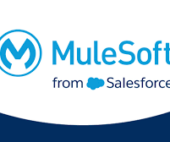Have You Recently Attended an Information-Packed Webinar?
Think back to your experience: from how you first learned about the event to its promotion and eventual execution. It might seem like organizing a webinar is straightforward, but…
Virtual event management requires meticulous planning, from the initial concept and promotion to post-event tasks. Read on to discover how you can plan your online events in Salesforce with ease and what you’ll need for success.
What is Virtual Event Management Plan in Salesforce?
Virtual event management encompasses all the activities needed to ensure your online event runs smoothly. It’s how you prepare to share your insights—or those of other experts—virtually. Why plan your events in Salesforce? All your data stays integrated within your CRM, allowing you to manage every aspect of your event, from registration and ticketing to marketing and attendee engagement, without the hassle of multiple tools or disorganized planning.
Types of Virtual Event Management Plans in Salesforce
Choosing the right virtual event format can be overwhelming, but here are some common options:
- Webinars: Typically lasting 45 to 80 minutes, webinars are often free with an opt-in. They allow for Q&A sessions, recording for on-demand viewing, and future marketing use. To make webinars feel more personal, consider streaming both the speaker’s face and slide deck simultaneously. This human touch can make a big difference.
- Virtual Conferences: Similar to in-person events, virtual conferences include keynotes, speakers, agendas, and breakout sessions. However, they lack some of the networking opportunities and lead capture insights of live events. Salesforce frequently streams conferences on its Salesforce+ channel, with Dreamforce being a prime example.
- Internal Hybrid Events: These are ideal for teams spread across different locations. They include training sessions, department meetings, and team-building activities, offering a time-efficient and convenient way to connect.
- External Hybrid Events: Designed for audiences outside your company, these events include industry conferences and organizational reports. Ensure high video quality so remote participants feel fully engaged.
- Virtual Exhibitions: When planning exhibitions or similar virtual events, you’ll need to go the extra mile with presentations, visuals, and possibly live demos. Enhance the virtual experience with additional cameras and trained staff to offer personalized tours or explanations.
How to Plan Virtual Events in Salesforce: A 4-Step Guide
1. Create a Virtual Event Concept
When planning a virtual event, don’t treat it like an in-person one. Virtual events require their own set of strategies. Start by answering these questions:
- Who is the event for?
- When will it take place?
- What is the event’s purpose (e.g., selling, promoting, or educating)?
- What metrics will you track during and after the event?
- Is there a CTA or materials to share (e.g., an ebook)?
- What’s your backup plan if things don’t go as expected?
Remember, seasonal holidays or other events can impact attendance. Avoid scheduling events during low-attendance periods, like the summer or late December.
2. Select an Event Management Tool
You need the right technology to manage online events effectively. Salesforce offers robust functionality for this. When selecting a tool for Salesforce event management, look for these features:
- Customizable event pages for ticket sales
- Compatibility with video conferencing tools (YouTube, Vimeo, etc.)
- Marketing automation capabilities
- Easy event creation and management
- Support for recurring events
- Pre-built reports and dashboards
3. Outline Content and Strategy
Crafting a virtual event that resonates with your audience requires more than just setting a date and topic. You need a compelling content strategy. Here’s how to make it work:
- Leverage Salesforce Digital Experiences: Create private or public communities for attendees to connect and engage before and after the event.
- Personalize the Agenda: Use Salesforce AI and analytics to segment attendees by interest and tailor the agenda accordingly, adding session info, speaker bios, and sponsor details.
- Maximize Your Marketing: Use email invites, social media promotion, and follow-ups to boost reach. Consider creating a unique event hashtag and sharing video invitations from speakers for better engagement.
- Practice Before the Event: Conduct dry runs to ensure speakers are confident and minimize unexpected issues.
- Create Video Invitations: Ask speakers to record short clips inviting attendees. Videos are easier to digest and can boost social media engagement.
4. Design an Event Microsite
Like in-person events, virtual ones benefit from a dedicated event page or microsite. On your Salesforce Experience Cloud site, you can:
- Create an event page with details like agenda, speakers, and sponsors.
- Use CTAs to direct visitors to register or explore your main website.
- Leverage membership management software to track top-performing events and attendee engagement.
The Ultimate Virtual Events Checklist
- Start with a solid concept and content strategy.
- Choose an event management app like AC Events Enterprise.
- Design an event page on your Experience Cloud site.
- Get creative with your promotion and marketing.
Final Thoughts
Virtual event management isn’t daunting if approached wisely. With a clear plan, engaging content, and the right tools, success is within reach. Follow these steps, and your next virtual event will be a breeze.












